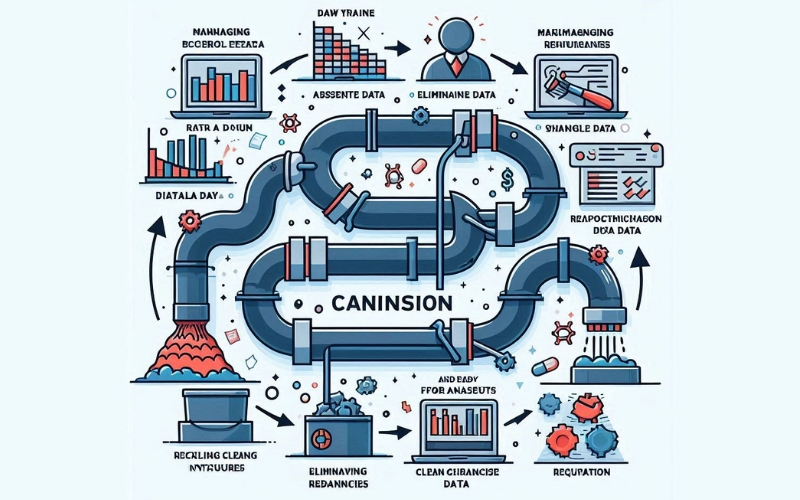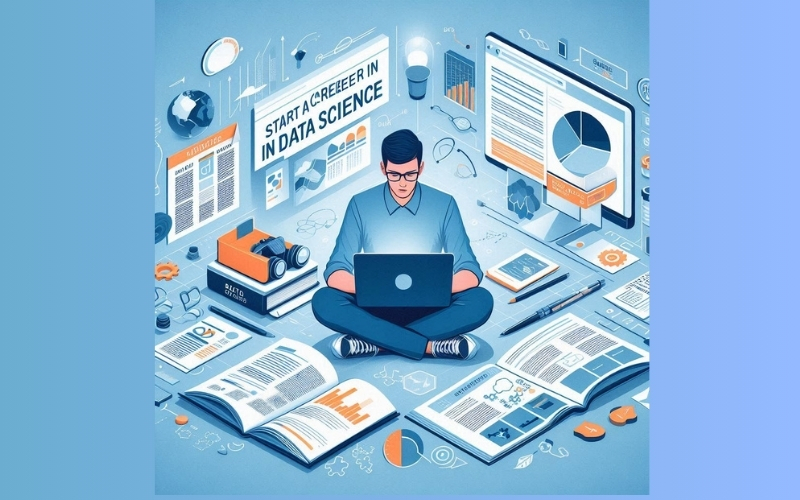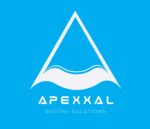
Introduction
So, you’re intrigued by the buzz around how to start a career in data science and thinking about diving into this exciting field? Great choice! Data science is transforming industries and creating incredible opportunities. But where do you start? Let’s break it down step by step so you can embark on a rewarding career in data science.
Table of Contents
Is a career in data science good?
Benefits and Opportunities
A career in data science, specifically how to start a career in data science, offers numerous benefits. It’s a field with high demand, excellent salaries, and opportunities for growth and innovation. Data scientists are needed across various industries, from healthcare to finance, making it a versatile career choice.
Industry Demand and Growth
The demand for data scientists is overgrowing. According to LinkedIn, data science is one of the most promising career paths, with a significant increase in job postings year over year. This demand is driven by the vast amounts of data generated daily and the need for professionals who can analyze and interpret this data to drive business decisions.
What do data scientists do?
Daily tasks and responsibilities
Data scientists are problem-solvers specializing in how to start a career in data science. They collect, analyze, and interpret large datasets to help organizations make informed decisions. Their daily tasks can include data cleaning, statistical analysis, building machine learning models, and creating visualizations to present findings.
Roles and specializations
Within data science, there are various specializations, such as data engineering, machine learning engineering, and business analysis. Each role focuses on different aspects of the data science workflow, from managing data infrastructure to developing predictive models and providing actionable insights.
How Hard Is Data Science to Learn?
Challenges Faced by Data Scientists
Data science can be challenging due to the complexity of data and the need for a broad skill set. Professionals must be adept in programming, statistics, and domain-specific knowledge. Additionally, staying updated with the latest tools and techniques is crucial.
Learning Curve and Skill Acquisition
The learning curve in data science is steep, but with dedication and the right resources, it’s manageable. It involves continuous learning and practice, starting with basic concepts and gradually moving to more complex topics and projects.
Start a Career in Data Science
First Steps to Take
Begin your journey on how to start a career in data science by understanding the basics: learn programming (Python is a great start), brush up on your math and statistics, and familiarize yourself with data analysis tools. Take online courses or enroll in a boot camp to get structured learning.
Key Considerations for Beginners
As you start, focus on building a strong foundation. Don’t rush through the basics. Working on small projects can help solidify your understanding and give you practical experience. Connecting with industry professionals can offer crucial insights and open up valuable opportunities.
What is the salary of a data scientist?
Salary Expectations
The field of data science boasts some of the top salaries within the technology industry. Entry-level positions can start with salaries around $70,000 to $90,000 annually, while experienced data scientists can earn upwards of $120,000. Senior roles and specializations can push salaries even higher.
Factors Affecting Salaries
Several factors influence how to start a career in data science, including location, industry, education, and experience. For instance, data scientists in tech hubs like San Francisco or New York City typically earn more than those in smaller cities. Similarly, industries such as finance and healthcare may offer higher salaries compared to others.
Understanding the Basics
What skills are needed?
To become a data scientist, you’ll need a mix of skills that blend technical expertise with analytical thinking. These include programming, statistics, machine learning, data visualization, and domain knowledge. Essentially, you’re looking at a mix of math, computer science, and subject-specific knowledge.
Essential tools and technologies
You’ll be working with various tools and technologies. Key ones include:
- Programming Languages: Python and R are staples.
- Data Analysis Tools: Pandas, NumPy.
- Visualization Tools: Tableau, Power BI, Matplotlib.
- Machine learning frameworks: Scikit-learn, TensorFlow, and PyTorch.
Educational Pathways
Formal Education: Degrees and Certifications
A degree in data science, computer science, statistics, or a related field can provide a solid foundation for how to start a career in data science. Many universities offer specialized programs in data science aimed at preparing students for the challenges and opportunities in this rapidly growing field. Certifications from recognized institutions (like Coursera, edX, or university extensions) also add value by equipping individuals with practical skills and industry-relevant knowledge.
Online courses and boot camps
There are numerous online courses and bootcamps tailored for aspiring data scientists. Platforms like Coursera, Udacity, and DataCamp offer comprehensive programs that cover the essentials and more advanced topics.
Self-Learning: Books and Online Resources
If formal education isn’t your path, self-learning can be equally effective. Books like “Python for Data Analysis” by Wes McKinney and “Hands-On Machine Learning with Scikit-Learn, Keras, and TensorFlow” by Aurélien Géron are excellent resources.
Laying a Solid Groundwork in Mathematics and Statistics
Key Concepts in Mathematics
Mathematics is the backbone of data science. Focus on areas like linear algebra, calculus, and probability. Understanding these concepts will help you grasp more complex algorithms and techniques.
The importance of statistics in data science
Statistics is crucial for starting a career in data science and making sense of data. You’ll need to understand descriptive statistics, inferential statistics, hypothesis testing, and regression analysis to interpret and draw conclusions from your data effectively.
Mastering programming languages
Python for data science
Python is the go-to language for data science due to its simplicity and versatility. It has a rich ecosystem of libraries like Pandas, NumPy, and Scikit-learn that are essential for data manipulation and machine learning.
R for data analysis
R is another powerful language, particularly for statistical analysis and visualization. It’s widely used in academia and research.
Other useful languages
While Python and R are primary, knowledge of SQL for database querying and even Java or Scala for big data technologies like Apache Spark can be beneficial.
Learning Data Manipulation and Analysis
Data Cleaning Techniques
Before analyzing data, you need to clean it. This entails managing absent data, eliminating redundancies, and rectifying inaccuracies. Tools like Pandas in Python make this process easier.

Exploratory Data Analysis (EDA)
EDA is about summarizing the main characteristics of your data. It involves visualizations and summary statistics to understand the data’s structure and uncover patterns.
Diving into machine learning
The Basics of Machine Learning
Machine learning is at the heart of data science. Start with the basics: supervised learning (regression, classification) and unsupervised learning (clustering, dimensionality reduction).
Key algorithms to know
Familiarize yourself with essential algorithms like linear regression, decision trees, support vector machines, and neural networks.
Practical Applications
Applying these algorithms to real-world problems, such as those encountered in how to start a career in data science, is key. Work on projects like predictive modeling, customer segmentation, or recommendation systems to see them in action.
Working with Data Visualization Tools
The importance of data visualization
Data visualization is about making data understandable through graphs and charts. It’s essential for communicating your findings effectively.
Popular Tools: Tableau, Power BI, and Matplotlib
- Tableau is great for creating interactive visualizations.
- Power BI is excellent for business analytics.
- Matplotlib is a Python library used for generating static, animated, and interactive visual representations.
Gaining practical experience
Internships and part-time jobs
Internships provide real-world experience and can often lead to full-time positions. They allow you to apply your skills in a practical setting.
Kaggle Competitions
Kaggle is a platform for data science competitions. Participating in these can help you practice, learn from others, and showcase your skills.
Personal Projects and Portfolios
Work on personal projects that interest you. Building a portfolio of these projects is crucial for showcasing your skills to potential employers.
Networking and community involvement
Joining Data Science Communities
Online communities like Reddit’s r/datascience, Stack Overflow, and specialized forums are great for learning and networking.
Attending meetups and conferences
Meetups and conferences are essential for starting a career in data science, providing opportunities to network and stay updated with industry trends. They offer chances to meet experts and learn about new tools and technologies.
Leveraging LinkedIn for Networking
LinkedIn is a powerful tool for networking. Connect with professionals in the field, join relevant groups, and share your work and achievements.
Building a portfolio
Importance of a Strong Portfolio
A strong portfolio showcases your skills and projects. It’s often the first thing employers look at, so make it comprehensive and professional.
What to Include in Your Portfolio
Include a variety of projects that demonstrate different skills related to how to start a career in data science. Ensure your portfolio is easy to navigate and visually appealing, showcasing code snippets, insightful visualizations, and detailed explanations of your work.
Preparing for Interviews
Common interview questions
Prepare for questions on statistics, machine learning, data manipulation, and real-world problem-solving. Practice coding challenges and algorithm questions.
How to Prepare for Technical Interviews
Review the basics of how to start a career in data science, practice coding regularly, and understand the concepts behind the algorithms. Websites like LeetCode and HackerRank are excellent for practice.
Tips for Non-Technical Questions
Be ready to discuss your projects, how you handle challenges, and your motivation for pursuing data science. Showcase your problem-solving abilities and teamwork skills.
Continuous learning and improvement
Keeping Up with Industry Trends
Data science is a rapidly evolving field, and if you’re wondering how to start a career in data science, follow blogs, read research papers, and subscribe to newsletters to stay updated with the latest trends and advancements.

Advanced courses and specializations
Once you’ve got the basics down, consider advanced courses in specific areas like deep learning, natural language processing, or big data technologies.
Challenges and how to overcome them
Common Challenges in Data Science
Common challenges include dealing with messy data, keeping up with new tools and techniques, and finding the right projects to work on.
Tips to Stay Motivated
Set realistic goals, take breaks when needed, and stay curious. Join a study group or find a mentor to keep yourself motivated and on track.
Conclusion How to Start a Career in Data Science
Starting a career in data science is a journey that requires dedication, continuous learning, and a passion for problem-solving. By building a strong foundation, gaining practical experience, and staying connected with the community, you can make a successful transition into this dynamic field. So, take the first step today and embark on your exciting data science adventure!
FAQs
- What is the best programming language for data science?
- Python is widely regarded as the best programming language for data science due to its simplicity and extensive libraries.
- Do I need a degree to become a data scientist?
- While a degree can be beneficial, many data scientists are successful through self-learning and practical experience.
- How important is mathematics in data science?
- Mathematics is crucial for understanding algorithms and performing data analysis. Key areas include linear algebra, calculus, and statistics.
- What are some top-notch resources to master data science?
- Online courses (Coursera, edX), books (“Python for Data Analysis”), and platforms like Kaggle are excellent resources.
- How can I build a strong portfolio?
- Include diverse projects that showcase your skills in data manipulation, analysis, visualization, and machine learning. Create a visually stunning and user-friendly interface.




